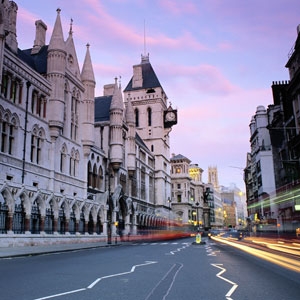RCGP accused of discriminating against ethnic minority candidates in MRCGP legal case

The RCGP has come under fierce attack at the High Court by an association of Indian doctors who say that ethnic minorities are being discriminated against and disadvantaged in their attempts to enter the profession.
Pointing to the wide disparity between the results of British and non-white candidates in the college’s entry exams, the British Association of Physicians of Indian Origin (BAPIO) says its members are being subjected to bias and race discrimination.
BAPIO is asking top judge, Mr Justice Mitting, to find the college in breach of its duty under the Equality Act to ensure that all candidates sitting its membership (MRCGP) exams are treated the same – however, the College vehemently denies the accusations.
Karon Monaghan QC, for BAPIO, told the judge: ‘The issue arising in this claim is the marked differences in the MRCGP success rates as between international medical graduates (IMGs) and non-IMGs and different racial groups.’
Focusing on the clinical skills Assessment (CSA) component of the MRCGP, the barrister said: ‘The most recent figures show, for example, an overall first time pass rate for UK graduates in the CSA of 91.4%. The equivalent figure for IMGs was 39.6%.’
She added: ‘The figure for white UK graduates was 96.5% but for south Asian UK graduates it was 84.8%.’
Miss Monaghan argued that the college’s Equality Act duties required it to take proportionate ‘positive action’ to put right any disadvantage or discrimination being suffered by overseas doctors in the examinations process.
Related stories
Analysis: Embattled RCGP on back foot in exam racism row
Little improvement in international graduate scores on CSA, show new figures
Judicial review into claims of racial bias in MRCGP will begin in April
She told the judge: ‘The college has failed and is continuing to fail to comply with the Public Sector Equality Duty (PSED) in repeatedly applying the MRCGP and, in particular, the CSA without modification notwithstanding that the discriminatory, that is to say disparate, outcomes are clear.”
The College had conducted no equality impact assessment when the CSA was introduced in 2007 and had maintained the MRCGP as a requirement for membership notwithstanding its obviously disparate results, she added.
The QC added: ‘The College has, because of their ethnic origin, treated black and minority ethnic (BME) candidates – both British graduates and and IMGs – less favourably than it treats white candidates.’
Miss Monaghan said: ‘Overall, BAPIO contends that the candidates’ nationality, national or ethnic origin, or colour, has had a significant influence on the outcome of their examinations.’
‘The only proper inference, therefore, is that the college has directly discriminated against IMGs and BME candidates.’
In court documents, the college denies discrimination or breaching its Equality Act duties and, along with the GMC, is resisting BAPIO’s judicial review challenge.
BAPIO’s written evidence to the court reveals that the college says it has repeatedly reviewed its membership criteria, both internally and externally, and takes multiple steps to ensure that BMEs and IMGs are in no way disadvantaged.
Those include inviting external observers to view the CSA and positive support for trainers who are sent on advanced courses to ensure that the correct methodology is used.
The college says that the differential in exam results could result from a whole raft of factors, including the quality of undergraduate training in different countries; the overall quality of candidates and the time elapsed between qualifying and sitting the CSA, which tends to be higher for IMGs.
An RCGP spokesperson told Pulse: ‘As the Court hearing in relation to this issue is taking place this week, we do not believe it is appropriate to comment at this time.’
The hearing continues.
Pulse July survey
Take our July 2025 survey to potentially win £1.000 worth of tokens













